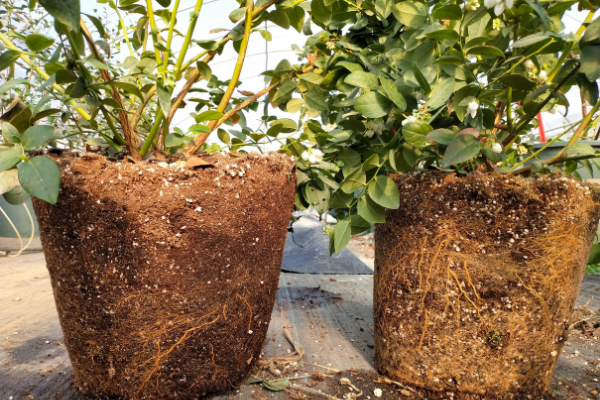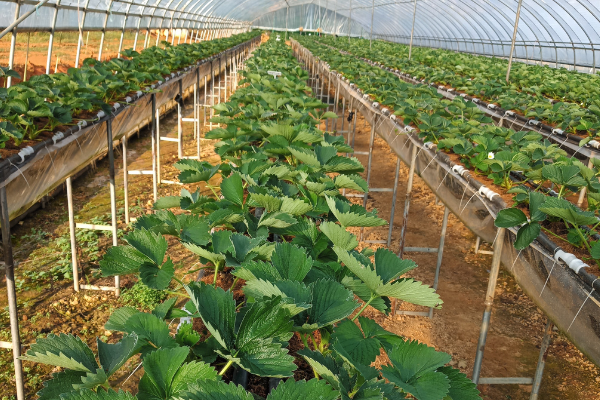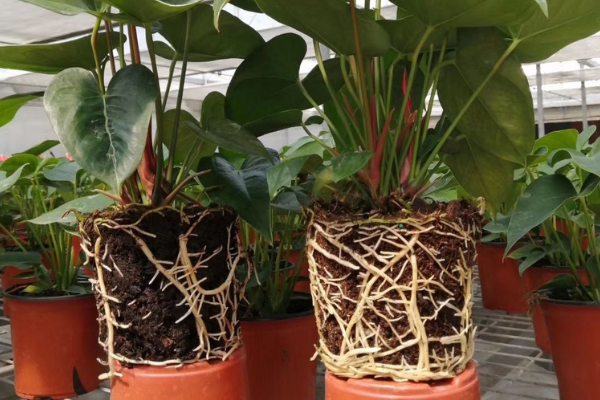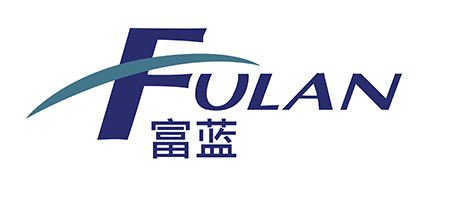Soilless cultivation has developed rapidly in China in recent years, and more and more growers have chosen substrate cultivation. Florentaise, a leading French formula-based substrate company, entered the Chinese market in 2015 and established a joint venture, Fulan Agriculture, in China. Recently, Liang Jinfu, the Fulan Agricultural Company's general manager, shared some information with us regarding the Chinese market.
"Furland is a Sino-French joint venture specializing in the production of formula-based substrates. With the help of nearly 50 years of experience and the unique pine fiber material of the Florentaise company, formula-based substrates are customized according to the characteristics of crops and the growing environment. Our products make extensive use of renewable resources, advocating the concept of peat-free. The substrates we produce are widely used for flowers, fruits and vegetables, seedlings, Chinese herbal medicines, and other fields, and we are the largest supplier of formula-based substrates in China,” said Manager Liang.

"We focus on providing wood fiber substrate formulations, which are the first in China. Through the technical treatment of pine waste materials, we can turn trash into treasures and make full use of resources to practice sustainable development," said Manager Liang. "The formation of peat takes thousands of years of accumulation. To a certain extent, it is also a non-renewable resource, at least in the short term. Pine fiber is a special substrate material after a high-temperature degreasing treatment. It is safe and environmentally friendly and has unique conductivity and permeability in substrate applications. Europe is now often referred to as 'peat-free' and is using wood fiber to replace the use of peat," said Manager Liang.

"We have factories in Changzhou, Jiangsu, and Foshan, Guangdong, and the scale continues to expand. We import core raw materials from abroad, and some of the raw materials are also produced in China. Once we have the raw materials, we can customize the formula according to the customer's crops' characteristics and the growing environment's needs. Now that domestic substrate cultivation is becoming more mature, it is no longer a single substrate but more customized formulas based on plant characteristics. For customers, we bring in the raw materials from abroad and store them in the factory warehouse, which can reduce the waiting time for their orders, especially in the case of unstable shipping caused by the pandemic, and can help customers reduce ordering risks and cost pressures. Under the current situation, peat and cocopeat need to be ordered 1-3 months in advance, which is not easy."
"Our domestic customers include all kinds of medium and high-grade potted flower customers. According to customer feedback, after using our wood fiber formula-based substrate, it is evident that the color of the flowers is brighter, the growth cycle is shortened, and the plant's root system grows well. We will remind customers of the precautions for using formula substrates at crucial points in plant growth. Our technicians visit customers regularly to solve practical problems they encounter in production. For new customers, we will also provide samples for trial planting."

"The substrates contain a variety of elements, which are not conducive to long-distance transportation and long-term storage. We recommend that customers order on demand and use them as soon as possible to maximize their effectiveness. We also plan to open more factories in China to deliver the freshest formula-based substrate to customers as soon as possible,” said Manager Liang.
"In recent years, horticultural development in China has grown significantly, and the government is vigorously supporting this. Yunnan has built a large number of modern fresh-cut flower industrial parks, and flower production has become more and more concentrated. The number of retailers has decreased, and the planting scale of large ones has continued to expand. The improvement of flower quality and of logistics efficiency will also further promote the development of the Yunnan flower industry. Now it can be seen that various fields in the industry are becoming more and more subdivided. The more professional, the more obvious the division of labor and cooperation. Only through joint development can we continue to grow bigger and stronger."
Mr. Liang also mentioned, "In addition to flowers, fruits, and vegetables, the cultivation of Chinese herbal medicine will be another important direction for the development of horticulture. There is a large amount of Chinese herbal medicine planted in China, especially in Yunnan. The organic matter content is reduced, pesticide and fertilizer residues are serious, and Yunnan's water supply is also threatened, so soilless cultivation of Chinese herbal medicine in the horticulture sector will become inevitable."
 More information:
More information:
Fulan Agricultural Technology (Jiangsu) Co., Ltd., Guangdong Fulan Agricultural Technology Co., Ltd.
Manager Liang
+8615901982453
